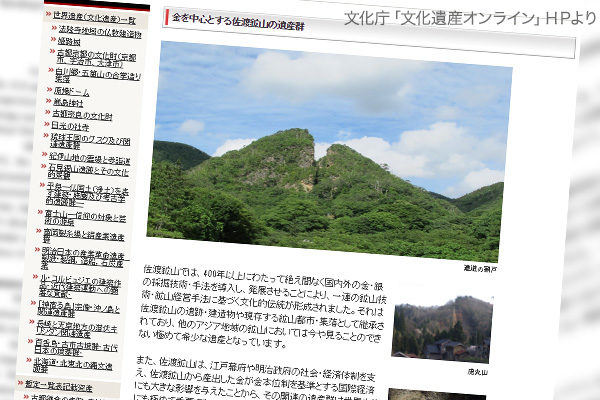Japanese Prime Minister Fumio Kishida looks like he lacks an ability to make decisions apparently because he demonstrates his ability to listen to others up to the last minute. On January 28 just before the February 1 deadline for recommending candidates for World Cultural Heritage designation by the United Nations Educational, Scientific and Cultural Organization (UNESCO), Kishida officially announced his decision to recommend a goldmine site on the island of Sado, Niigata Prefecture.
The next focus of attention is how far the Japanese government can make fact-based arguments in the international arena. Japan cannot avoid making arguments because it was challenged by South Korea to a historical warfare, as noted by former Prime Minister Shinzo Abe.
Local paper showing understanding of South Korea’s distortion
Seoul has already claimed the Sado goldmines as a site of forced Korean labor during World War II and harshly criticized Tokyo’s decision. South Korea will make all-out efforts to block UNESCO from designating the Sado goldmines as a World Cultural Heritage site.
As proven by historical records, however, Korean workers at the goldmines were treated in the same way as Japanese, given free accommodations and inexpensive meals. Koreans were never coercively recruited or engaged in forced labor at the goldmines.
Nevertheless, we can see movements that lack sense of direction among some relevant parties. As an example, I cite an editorial in the leading local newspaper Niigata Nippo on January 29.
“South Korea has raised a problem that the Sado goldmines were a site where people from the Korean Peninsula were engaged in forced labor during the war. While the South Korean sentiment over forced labor is understandable, the recommendation covers the Sado goldmines’ development until the Edo Period [that ended in 1868] … It may be reasonable to discuss whether to register the goldmines as a World Cultural Heritage site from the viewpoint of their cultural value separated from historical awareness.”
The editorial shows understanding of the South Korean claim instead of rebutting it and pays attention to the recommendation coverage well before World War II in a bid to avoid argumentation. The newspaper is said to refrain from carrying letters to the editor or opinion ads that could provoke South Kore over forced labor and politicize the matter, irrespective of whether the opinions are based on facts.
This is none other than inconsiderate attitude because efforts to avoid arguments usually give South Korea fresh impetus to continue to attack. Regarding the Sado goldmine issue, I hear that local relevant parties have not made forward-looking preparations. Given the Niigata Nippo editorial, this may be regrettably true.
Don’t think upside down
We have to be most careful from now not to think upside down.
UNESCO is one of international bureaucratic organizations dominated by officials from various countries including autocratic states that ignore human rights. An idea of winning the World Cultural Heritage designation from UNESCO to qualify the goldmines as tourism resources is understandable as a business approach. But the designation has nothing to do with real values of a country’s cultures or traditions. None may consider that Japan should recommend the Imperial Palace as a World Cultural Heritage site for a UNESCO decision.
Be that as it may, now that the Japanese government has decided to recommend the Sado goldmines as a World Cultural Heritage site, the most important thing for Japan from now is to squarely rebut South Korea’s distortion of history and correct wrong historical awareness. If Japan proudly fights historical battle over the Sado goldmines, we will see an increase in the number of Japanese people visiting the site with respect irrespective of whether the goldmines win the World Cultural Heritage designation or not. None will want to go to see the Sado goldmines that win the UNESCO designation after showing understanding of the South Korean distortion.
Yoichi Shimada is a senior fellow and Planning Committee member, Japan Institute for National Fundamentals, and a professor at Fukui Prefectural University.


